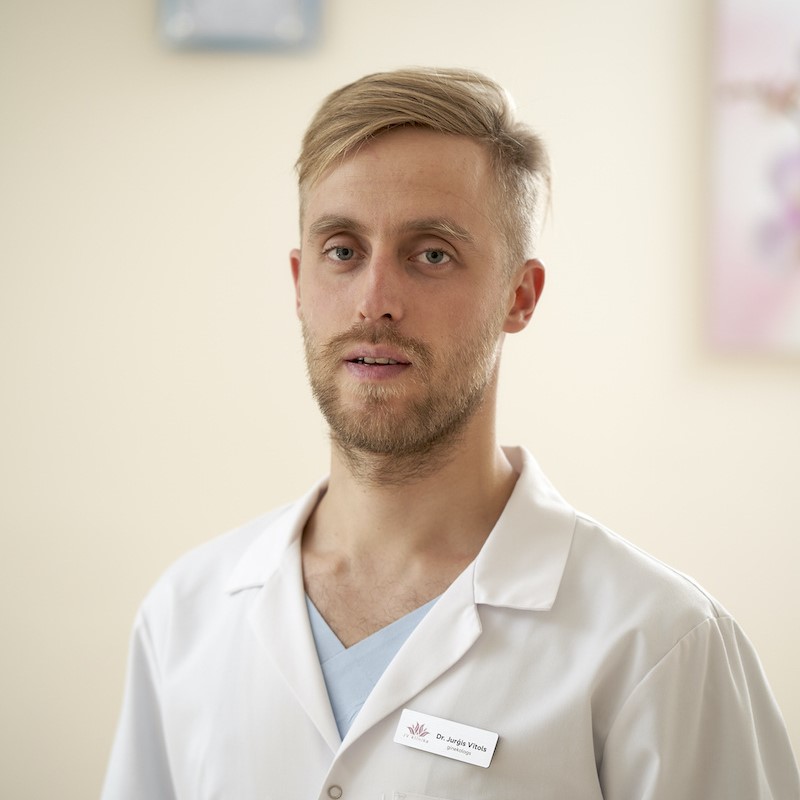
Dr. Jurgis Vitols
Dr. Jurgis Vitols
Jurgis Vitols – Endometriosis Specialist
Summary: Dr Jurgis Vitols is a leading endometriosis specialist based in Riga, Latvia, known for his precise surgical expertise and individualized approach to care. With a foundation in the genetic-epigenetic theory of endometriosis, Jurgis Vitols believes in tailoring treatments to each patient’s unique biology and goals. He specializes in excision surgery and prefers cystectomy for ovarian cysts, sometimes using laser vaporization when preservation of healthy tissue is a priority.
Dr Jurgis Vitols carefully considers each patient’s preferences when recommending medical management. For those avoiding surgery, he may suggest oral contraceptives or progesterone pills. After surgery, he personalizes follow-up care based on fertility goals, occasionally using short-term GnRH therapies when appropriate. In cases of persistent pain, Dr Vitols incorporates hormone therapy and may refer patients to pain specialists for additional support. His patient-centered, evidence-based care makes him a trusted expert in endometriosis treatment.
City: Riga, Latvia
Philosophy of Endometriosis Care: Genetic-Epigenetic Theory.
What type of surgery do you perform for endometriosis: Excision; Both. I may use ablation only for ovarian cysts. For ovarian endometriosis, I may use laser vaporization on the hilum of the capsule or for all of the cyst capsules in case the cyst enucleates badly and there is a high risk of damage to normal ovarian tissue. My preferred approach for ovarian cysts is cystectomy.
Medication: Depends on the patient’s wishes and complaints. For patients who don’t want to have surgery, I recommend the use of combined oral contraceptive pills or progesterone pills. If symptoms persist, I recommend surgical treatment. After surgery, I recommend long-term use of combined oral contraceptive pills or progesterone pills for patients who don’t wish to become pregnant and have had ovarian endometrioma to reduce recurrence. For patients who wish to become pregnant after surgery, sometimes I recommend short use (maximum of 3-4 months) of GnRH analogs or GnRH antagonists to improve their chance of having a natural conception. I never prescribe long-term use of GnRH medication.
Approach to Persistent Pain After Surgery: Combined oral contraceptive pills or progesterone pills. Suppose this doesn’t help—pregabalin or amitriptyline. Patients with persistent pain symptoms are referred to pain specialists.

Dr. Liliana Puycan
Dr. Liliana Puycan
Dr Liliana Puycan – Endometriosis Specialist
Summary: Dr Liliana Puycan is a dedicated endometriosis specialist based in Lima, Peru. With a patient-centered approach, Dr Liliana Puycan focuses on the coelomic metaplasia and immunological theories, emphasizing how inflammation and immune responses contribute to endometriosis. She combines expert excision surgery with holistic care that includes progestin or bioidentical hormone therapy, lifestyle changes, and anti-inflammatory nutrition. Dr Liliana Puycan takes a comprehensive view of treatment, before and after surgery, encouraging physical activity, reduction of endocrine disruptors, and management of visceral fat to address hyperestrogenism and improve long-term outcomes. Her commitment to whole-patient care and thoughtful attention to individual needs makes Dr Liliana Puycan a trusted resource for those navigating the complexities of endometriosis.
City: Lima, Peru
Philosophy of Endometriosis Care: The theories of endometriosis that focus my treatment are the theory of coelomic metaplasia and the immunological theory since I think that the disease grows or proliferates in an inflammatory-immune environment, originating in certain patients susceptible to the disease.
What type of surgery do you perform for endometriosis: Excision
Medication: I begin treatment with the use of progestins and/or bioidentical progesterone, in addition to changes in nutrition and lifestyle to reduce the inflammatory effect of the disease.
Approach to Persistent Pain After Surgery: Before the surgical treatment, I made sure that the patient had already started a complete diet and physical activity regimen, which would continue postoperatively. Understanding the importance of reducing the intake of endocrine disruptors and reducing the percentage of visceral fat that leads to hyperestrogenism is essential for the long-term management of this type of patient.
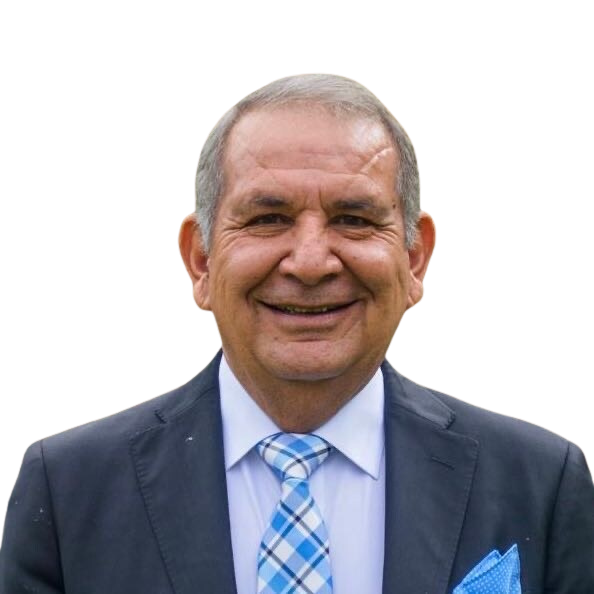
Dr. Marco Antonio Lopez Zepeda
Dr. Marco Antonio Lopez Zepeda
Doctor Zepeda – Endometriosis Specialist
Summary: Dr Zepeda, is a highly regarded endometriosis specialist based in Guadalajara, Jalisco, Mexico. With extensive expertise in excision surgery, Dr Zepeda is committed to providing personalized care rooted in leading theories of endometriosis, including retrograde menstruation and coelomic metaplasia. Doctor Zepeda tailors treatment plans based on each patient’s symptoms, fertility goals, and IDEA Protocol results, ensuring thoughtful, patient-centered solutions. He utilizes a range of medical therapies such as Dienogest, GnRH analogs, anovulatory agents, and progestins to support healing and pain management. For those experiencing persistent pain after surgery, Dr Zepeda focuses on individualized care strategies that consider long-term health and well-being. With a warm, professional approach and a deep understanding of endometriosis, Dr Zepeda offers trusted expertise to patients seeking relief and improved quality of life.
City: Guadalajara, Jalisco, Mexico
Philosophy of Endometriosis Care: Retrograde Menstruation (Sampson Theory), Celomic Metaplasie (Iwanoff and Meyer Theory), Linfatic or Vascular Dissemination, and Embryonic Remains Theory.
What type of surgery do you perform for endometriosis?: Excision
Medication: Dianogest, GnRh Analogs, Anovulatories, Progestins
Approach to Persistent Pain After Surgery: Depends on the patient´s symptoms, desire for childbearing, and the results of the IDEA Protocol.
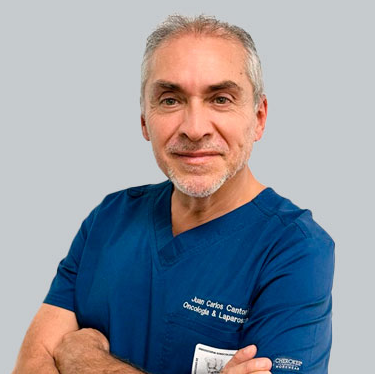
Dr. Juan Carlos Canton Romero, PhD MD
Dr. Juan Carlos Canton Romero, PhD, MD
Dr Juan Carlos Canton Romero – Laparoscopic Surgeon, Endometriosis Specialist
Summary: Dr Juan Carlos Canton Romero is a leading endometriosis specialist and laparoscopic surgeon based in Guadalajara, Mexico. Known for his personalized, compassionate care, he uses a patient-centered approach grounded in the Mullerianosis theory. With expertise in minimally invasive procedures, Dr Juan Carlos performs excision surgeries tailored to each patient’s age, fertility goals, and disease stage. He also manages symptoms with medications like dienogest, GnRH inhibitors, and oral contraceptives. For persistent pain after surgery, Dr Juan Carlos recommends a holistic plan that may include physiotherapy, yoga, and ongoing hormonal support. Patients value his commitment to preserving fertility when possible and his thoughtful, evidence-based care. With Dr Juan Carlos, individuals experiencing endometriosis can expect clear communication, tailored treatment, and support throughout their healing journey. Whether seeking surgical expertise or long-term symptom relief, Dr Juan Carlos provides the experience and empathy patients need to feel heard and supported.
City: Guadalajara, Jalisco, Mexico
Philosophy of Endometriosis Care: Mullerianosis
What type of surgery do you perform for endometriosis?:
Ovarian ablation in young patients to preserve hormonal function and uterine in those who wish to preserve fertility; ovarian resection in postmenopausal patients. Uterine resection is for those who do not wish to preserve fertility. In patients with early-stage cancer with a good prognosis of the ovary and cervix and a desire to preserve fertility, conservative surgery was performed.
Medication: Oral analgesics, antispasmodics, prostaglandin inhibitors AINES, continuous oral contraceptives with Dienogest (Qlaira), continuous dienogest, GnRH inhibitors for 3–6 months, and Levonorgestrel IUD.
Approach to Persistent Pain After Surgery: Physiotherapy, rehabilitation, exercise like yoga, continuous contraceptives, and/or dienogest.
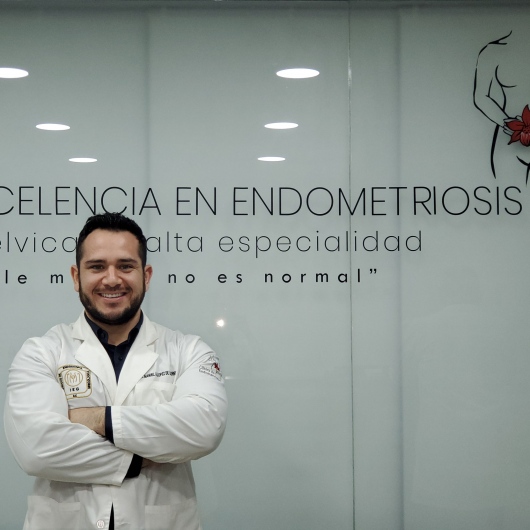
Dr. Manuel Lopez
Dr. Manuel Antonio Lopez de la Torre, M.D.
Dr Manuel Lopez – Endometriosis Specialist, Gynecologist, Minimally Invasive Gynecologic Surgeon
Summary: If you’re looking for expert care in endometriosis, Dr Manuel Lopez is a trusted and compassionate specialist dedicated to helping women live healthier, more comfortable lives. Many patients first discover Dr. Manuel Lopez while searching for top gynecologists under names like Manuel Lopez MD San Antonio or Doctor Manuel Lopez, drawn by his excellent reputation. Though based in Guadalajara, Jalisco, Mexico, Dr. Manuel A Lopez MD San Antonio TX is well known to U.S. patients who travel for his expert care in minimally invasive gynecologic surgery.
Dr. Lopez takes a thoughtful, individualized approach to endometriosis, grounded in both medical science and empathy. He draws on a range of theories, including celomic metaplasia, retrograde menstruation, lymphatic and vascular dissemination, and embryonic origins, as well as genetic and immunological factors, to inform his care.
For treatment, Dr. Lopez typically begins with combined progestins, followed by pure progestins if needed, and rarely, GNRH analogues with add-back therapy. Pain is managed with COX inhibitors, NSAIDs, smooth muscle relaxants, and supportive treatments like multivitamins.
What truly sets Dr. Manuel Lopez apart is his conservative and holistic approach to surgery, which is only recommended for about 30% of patients. His multidisciplinary team includes experts in colorectal surgery, fertility, urology, physical therapy, psychology, nutrition, pain management, and sexology to ensure patients receive well-rounded care.
City: Guadalajara, Jalisco, Mexico
Philosophy:
Medication:
Approach to Persistent Pain After Surgery:
When needed, the treatment always starts BEFORE the surgery, and SURGERY is indicated only in approximately 30% of our total amount of patients. Generally, most of the indications for surgical procedures depend on adhesions, anatomical changes due to nodules or adhesions, deep infiltrating nodules affecting the organs functional tissue(Muscular layers), adenomyosis. We always perform an integral follow-up on patients. Our clinic is constituted by multiple specialties, and we derive before surgery to the affected areas to deep study. When the symptoms continue, depending on the area, they get treated by whoever is demanded (Colo- proctology, Fertility, Urology, Physical Therapy, Psychology/Psychiatry, Nutrition, Pain specialist, Sexology).
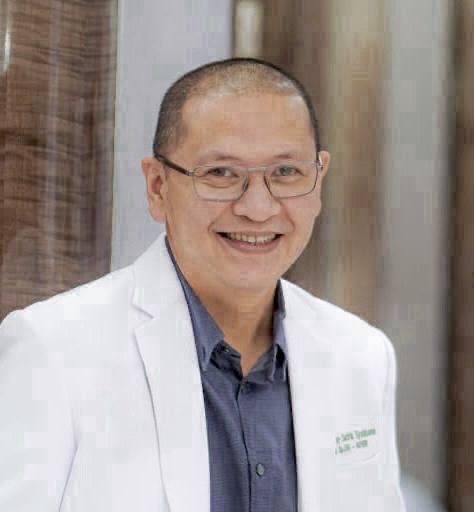
Dr. Luky Satria
Dr. Luky Satria, M.D.
Jakarta Doctor, Dr Luky Satria – Endometriosis Specialist, Gynecologist, Minimally Invasive Gynecologic Surgeon
Summary: Dr. Luky Satria is a highly respected Jakarta doctor specializing in endometriosis care and minimally invasive gynecologic surgery. Patients seeking expert, compassionate care often turn to Dr. Luky Satria for a personalized treatment plan that balances medication, surgery, and fertility considerations. His approach begins with hormonal therapy to manage endometriosis-related pain, reserving surgery for cases where medication is ineffective or when fertility outcomes can be improved.
Known for his thoughtful and evidence-based methods, Dr. Satria carefully evaluates each patient’s condition using imaging tools like ultrasound or MRI to guide the next steps. Postoperative care often includes continued hormonal treatment to reduce recurrence and support long-term well-being. As a trusted Jakarta doctor, Dr. Luky Satria is committed to delivering thorough, respectful care to every patient, tailoring his approach to meet their individual health and fertility goals.
City: Jakarta, DKI Jakarta, Indonesia
Philosophy: Probably multifactorial, coelomic metaplasia and retrograde menstruation combined with genetic-epigenetic factor
Medication: I use medication/ hormonal (progestin or LNG IUS) as the first-line treatment for endometriosis-associated pain, when the hormonal failed then complete excision surgery will be done. I also give hormonal treatment to patients waiting for surgery.
Hormonal treatment is also given to post-operative patients who don’t seek fertility to reduce recurrence risk.
Approach to Persistent Pain After Surgery: Systematic mapping with ultrasound (or MRI when needed) will be done to search for residual lesions (due to incomplete surgery) or de novo lesions. Surgery will be done when we find DIE lesions, but if it is ovarian lesions (endometrioma), I will suggest hormonal treatment or ART since repeat surgery of recurrent endometrioma will give a bad prognosis in ovarian function, especially in subfertility patients.

Dr. Maria Victoria Vargas
Dr. Maria Vargas, M.D.
Victoria Vargas – Gynecologist, Minimally Invasive Gynecologic Surgeon
Summary: Victoria Vargas MD, also known as Dr. Vargas OBGYN, is a skilled gynecologist and minimally invasive gynecologic surgeon based in Washington, D.C. Specializing in endometriosis, Dr. Maria Vargas combines a deep understanding of the disease’s complex nature with a patient-centered approach to care. She emphasizes the multifactorial origins of endometriosis, incorporating the latest research, including the Mulleriosis theory, to offer individualized treatment options.
Dr. Vargas provides comprehensive care, including hormonal therapies like combined oral contraception and the levonorgestrel-releasing IUD, tailored to each patient’s needs. She also focuses on managing persistent pain post-surgery, offering non-narcotic solutions such as nerve blocks, acupuncture, and pelvic floor physical therapy. Whether through lifestyle recommendations or advanced surgical techniques, Dr. Vargas helps her patients improve their quality of life with personalized, holistic care.
City: Washington DC, USA
Philosophy: Endometriosis is a complex disease and its etiology appears to be multifactorial. Currently, Mulleriosis seems to be the most accepted theory of origin. Unfortunately, we still lack understanding about the full spectrum of the disease, which includes a self-sustaining, highly inflammatory environment with the capacity to promote its own nerve and blood supply. There seems to be a hereditary component, and increasingly, we are defining somatic mutations common to endometriosis lesions. Given the many unknowns regarding endometriosis, I focus my practice on ensuring patients understand the complexity of the disease and try to develop an individualized approach based on each patient’s preferences and circumstances.
Medication: Depending on my patient’s preferences and needs, I offer hormonal suppressive therapy, including combined oral contraception, oral progestin medication, and the levonorgestrel-releasing IUD. I typically recommend extended-cycle dosing or continuous dosing of oral medications to achieve amenorrhea. In some cases, when patients don’t have sufficient improvement with hormonal suppression or when they don’t tolerate or are opposed to hormonal suppression, I may also recommend NSAIDs, gabapentin, or SNRIs.
Approach to Persistent Pain After Surgery: I bring up the possibility of residual pain before the surgery takes place so patients understand that there may be ongoing treatment beyond the recovery from surgery. I follow patients closely after surgery to ensure that they are able to achieve a maximal improvement in quality of life. If residual pain is present, I consider the possibility of co-morbidities, such as pelvic floor dysfunction and painful bladder syndrome. When appropriate I refer to my colleagues in pelvic floor physical therapy, pain management, and urology. I do promote a focus on non-narcotic options for residual pain, such as nerve blocks, trigger point injections, acupuncture, and TENS therapy. I also encourage mindfulness and meditative practices. I utilize hormonal suppressive therapy when appropriate as well. Rarely, I discuss second-look surgery as an option. I find that the vast majority of my patients achieve a positive outcome with this approach.
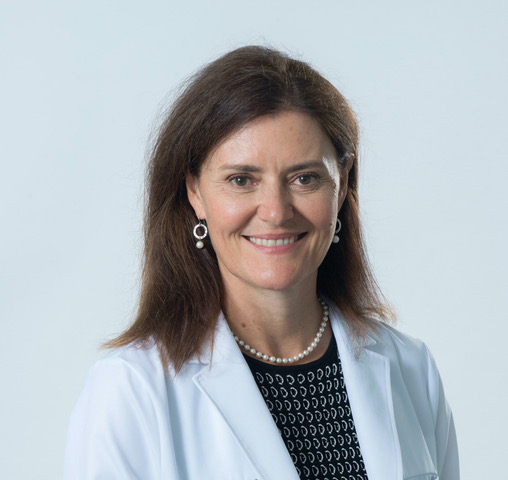
Dr. Shanti Mohling
Shanti Mohling, M.D.
Dr Shanti Mohling – Endometriosis Specialist, Minimally Invasive Gynecologic Surgeon
Summary: Dr Shanti Mohling, an experienced endometriosis specialist based in Portland, OR, takes a multifaceted approach to treating pelvic pain and endometriosis. Dr Mohling believes endometriosis originates during embryogenesis, and hormonal changes at menarche trigger its progression. Her philosophy combines a deep understanding of the condition’s genetic and environmental factors. With a focus on complete excision, Dr Mohling works to arrest the disease and improve her patients’ quality of life. She offers various hormonal therapies, including progestin-only contraceptives and bioidentical hormone therapy for surgical menopause patients. For pain management, she uses a combination of NSAIDs, nerve modulation, and sometimes Botox for pelvic floor myalgia. Dr Mohling’s holistic approach also includes collaboration with specialists in areas like functional medicine, pelvic floor physical therapy, and nutritional support, making her a compassionate and thorough provider for patients seeking expert care for endometriosis.
Incorporating her expertise and dedication, Dr Shanti Mohling is a trusted name in Portland for patients looking for comprehensive care in treating endometriosis and pelvic pain.
City: Portland, OR, USA
Philosophy: I believe endometriosis has multifactorial origins. Regarding surgical management, I treat it as though its origin begins with development during embryogenesis as the müllerian system is migrating. I believe most patients with endometriosis are born with it and that it flourishes during menarche with advent of hormonal changes. I also believe that there is a component of environmental impact such that a patient with genetic predisposition (and abnormal cells from embryogenesis) may do worse with an inflammatory environment (foods, pollution, stress, etc.). However, I believe that complete excision should mostly arrest disease and my treatment is based on mullerianosis as the genesis.
Medication: I work with patients in a collaborative fashion to arrive at the best option for each individual.
Hormonal therapies: Progestin-only contraceptives, combination oral contraceptives, Levonorgestrel IUD, Nexplanon occasionally. I almost never offer Depo Medroxyprogesterone acetate (due to side-effects) or GnRH analogs (due to side-effect profile and long-term negative effects). I have worked with bioidentical hormone therapy for over 20 years and also incorporate that when appropriate, such as in patients who have undergone surgical menopause or patients who do not tolerate synthetic hormonal therapy.
For pain: NSAIDS, occasionally narcotics, naltrexone and occasionally Medical Marijuana when appropriate. Sometimes neuromodulators such as gabapentin and pregabalin. I often recommend amitriptyline, especially in the case of interstitial cystitis. Finally, I sometimes prescribe compounded vaginal suppositories which may include valium, baclofen or ketamine.
I also use Botox for pelvic floor myalgia on a routine basis.
Approach to Persistent Pain After Surgery: I believe most pelvic pain is multifactorial: endometriosis, interstitial cystitis, bowel dysfunction (to include IBS, SIBO, Intestinal Permeability, gastroparesis), myofascial pain and neuropathic pain. At the initial work-up, I attempt to identify each of these contributors. Yesterday, I saw a postop patient who had had extensive endometriosis excised and confirmed by pathology. She had persistent pain. We reviewed her history of bowel symptoms, history of schistosomiasis and giardia (she had worked in Africa) as well as an exam suggesting pelvic floor myalgia. She will now work with a functional medicine specialist and pelvic floor physical therapist. We also discussed hormonal options (progesterone has a distinct effect on gastric function). This is very typical of my approach.
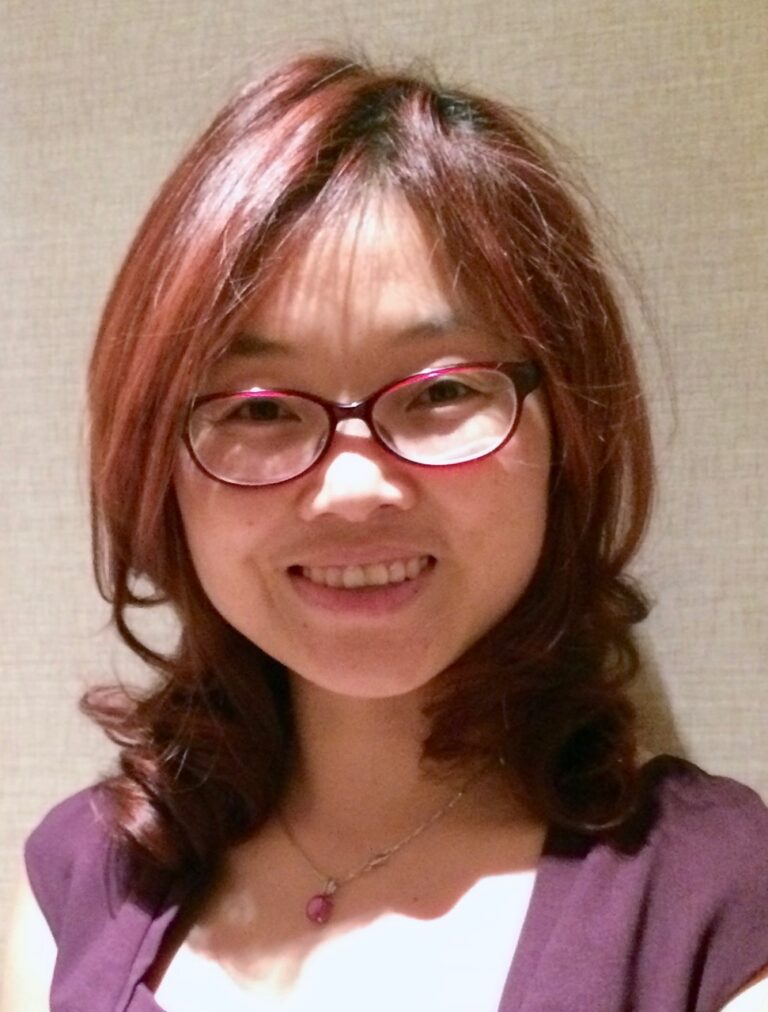
Dr. Ma Li
Dr. Ma Li, M.D.
Dr Ma Li – Endometriosis Specialist, Minimally Invasive Gynecologic Surgeon
Summary: Dr Ma Li is a leading specialist in endometriosis care and minimally invasive gynecologic surgery based in Singapore. Known for her compassionate approach, Dr. Ma Li offers personalized treatment options for patients seeking expert support for endometriosis in Singapore. She specializes in both hormonal therapy and endometriosis surgery in Singapore, tailoring care based on each patient’s symptoms, fertility goals, and surgical history.
With a deep understanding of conditions like adenomyosis, IBS, and myofascial pain, Dr Ma Li takes a holistic view of persistent pelvic pain. She prioritizes accurate diagnosis, evidence-based treatments, and collaborative care with other specialists when needed. Whether it’s using hormonal management to prevent recurrence or performing advanced excision surgery, her focus is on long-term relief and quality of life. Patients trust Dr. Ma Li for her dedication and expertise in treating endometriosis in Singapore through both medical and surgical options.
City: Singapore, Singapore
Philosophy: Retrograde menstruation and metaplasia, hormone dependant.
Medication: Progesterone based (dienogest, depo-provers), Mirena, GnRha, oral contraceptive pills
1. I use hormonal suppression mostly for postop patients who don’t have a fertility plan, aiming to reduce the risk of recurrence.
2. young patient, low AMH, the trial of medical treatment, and monitor response.
Approach to Persistent Pain: 1. need to find out why pain persists. whether due to previous incomplete surgery, adenomyosis, or other reasons such as IBS, interstitial cystitis, myofascial pain syndrome, etc. and treat accordingly.
2. if due to incomplete surgery, depending on the location of the disease. If deep infiltrating endometriosis, I will suggest repeat surgery. if cyst recurrence, for a young patient, I will try hormonal treatment and see the response. If poor response, then repeats surgery.
If it’s due to adenomyosis, for patients with fertility requirements, I will try the hormonal treatment. For those who had completed family, and failed medical treatment, I will suggest a Total Laparoscopic Hysterectomy.
If it’s due to IBS, Interstitial Cystitis, or myofascial pain, I will refer other subspecialties accordingly.

Dr. Steven Vasilev
Dr. Steven Vasilev MD, MBA FACOG FACS FACN ABIHM ABOIM
Dr Steven Vasilev – Endometriosis Specialist, Oncology & Minimally Invasive Robotic Surgery| Medical Director, GO Institute.
Summary: Dr Steven Vasilev is a highly respected endometriosis specialist serving patients in Santa Monica, Beverly Hills, and San Luis Obispo. With over 30 years of experience, Dr Vasilev is known for his expertise in complex gynecologic surgery, including minimally invasive and robotic techniques. Steven Vasilev MD is the only physician in the U.S. triple board-certified in OB-GYN, oncology, and integrative medicine—bringing a comprehensive, personalized approach to each patient’s care.
Patients who choose Dr Steven Vasilev benefit from a philosophy that combines precision excision surgery with holistic healing strategies. From preoperative imaging to pelvic floor therapy and integrative recovery plans, Dr Vasilev offers thoughtful, multidisciplinary care tailored to long-term wellness. Steven Vasilev MD is not only a skilled surgeon but also a compassionate listener dedicated to improving outcomes for those living with endometriosis.
City: Santa Monica, Beverly Hills & San Luis Obispo, CA, USA.
Please watch the short informative video in the upper left corner of this profile.
Philosophy:
In addition to being a doctor and surgeon, I am a clinical researcher and translational scientist. We are studying the molecular behavior of endometriosis in our laboratories. Endometriosis theories suggest multiple causes, and each thesis
contributes to factors likely tied together at the molecular genetic level. Identification of endometriosis molecular and immunomodulatory pathway biomarkers will soon lead to better non-invasive diagnostics, accurate monitoring, and effective therapies beyond the baseline of expert excisional surgery and hormonal manipulation. I focus on this and the uncommon but clear overlap with malignancy in older endo patients or those with a family history.
Surgical excision is a critical cornerstone for endo diagnosis, initial treatment, and re-excision of recurrence or pain-producing fibrosis. My philosophy is to be fully informed and prepared, no matter the findings, through optimal preoperative imaging and testing. Fortunately, my unique training and board certifications permit surgery on all abdominal or pelvic organs, including small and large bowel, ureters, bladder, liver, and diaphragm. If disease is suspected beyond these organs, such as the chest, we have expert cardiothoracic and neurosurgeons ready to join a multidisciplinary surgery. Having used both laparoscopy and robotics in thousands of surgeries over three decades, including the hardest of the complicated surgeries, I firmly believe that the far superior 3-D camera optics and articulating or wristed “tiny hands” instruments used in robotics are better than traditional laparoscopy for all but the simplest of cases. When complicated anatomy or scarring from endo and fibrosis is unexpectedly found, which is not uncommon because endo is intensely inflammatory, the ability to see better and use finesse instruments makes all the difference, especially in highly experienced hands.
Medication:
During the perioperative period, we use holistic ERAS-modified care, combined with integrative modalities such as acupuncture and acupressure, to allow faster recovery with lower narcotic use. We individually construct and coordinate a multidisciplinary consulting team of experts to manage pain, intestinal manifestations such as SIBO and pelvic floor dysfunction. We work with referring gynecologists regarding hormonal support but discourage using GnRH-based therapies. My board certification in Integrative Medicine uniquely injects additional options involving holistic care. An example is proactive estrobolome management to lower systemic estrogen levels naturally.
Approach to Persistent Pain:
Both pre- and post-operatively, I strongly encourage pelvic floor therapy and pain specialist consultation and follow-up. The genesis of endo-induced pain can be due to endometriosis implants and peripheral visceral and parietal peritoneal nociception, fibrosis, direct nerve impingement, pelvic floor dysesthesia, or central sensitization. A very individual approach is vital to the best management plan. In primary and persistent pain situations, each of these “medicalese” terms is discussed in detail to craft the best possible personalized plan. Finally, as noted above, I am a board-certified integrative medicine practitioner and thus apply Eastern thought such as acupuncture, mind-body strategies, and personal nutritional counseling and interventions.
Dr. Steve’s Articles:
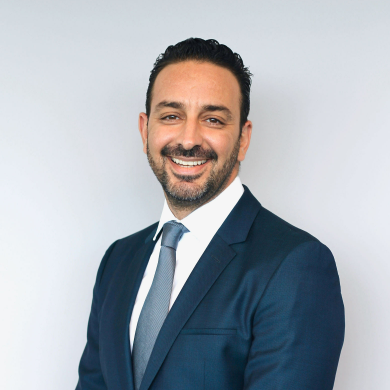
Dr. Nadim Hawa
Dr. Nadim Hawa, M.D.
Dr Nadim Hawa – Endometriosis Specialist, Minimally Invasive Gynecologic Surgeon
Summary: Dr Nadim Hawa is an experienced endometriosis specialist and minimally invasive gynecologic surgeon based in Leesburg, VA. Known for his compassionate and individualized care, Dr. Hawa is committed to helping patients find lasting relief from endometriosis. Whether you’re searching for Dr Hawa OBGYN or learning more about Dr Hawa endometriosis expertise, his approach combines surgical precision with long-term support.
Dr Hawa believes endometriosis has diverse origins, which is why he tailors treatment plans to each patient’s specific condition. While medications may ease symptoms, he emphasizes that they don’t address the root of the disease. Instead, he focuses on complete excision surgery and often integrates pelvic floor therapy to improve outcomes. As both a skilled surgeon and dedicated partner in care, Dr Nadim Hawa offers a comprehensive approach to managing endometriosis with the goal of restoring quality of life.
City: Leesburg, VA, USA
Philosophy: Multiple factors. Combination of in Sito development and endometrial transplantation. I do not believe there is only one type of endometriosis. Different origins hence different differentiation, behavior, and clinical impact. Same as fibroid. Why you have one solitary fibroid vs the bag of marbles of a uterus. Different gene expression and different behavior.
Medication: Medication and hormonal suppression serve only to relieve symptoms but not treat the disease. By stopping the dynamic motion of the uterus with suppression, you limit the superficial peritoneal inflammation and cause symptomatic relief, but you will not affect the deep lesions. since they produce their own estrogen and pro-inflammatory mediators. .I use IUD and usually insert intraoperatively after the excision surgery if the patient e desires birth control. GnRH agonist/antagonist are harmful and I do not use them
Approach to Persistent Pain: Surgery alone is not enough. Pelvic floor therapy is as important as surgery, for long term recovery.
A second excision is usually advised.

Dr. Lora Liu
Dr. Lora Liu, M.D.
Dr Lora Liu – Endometriosis Specialist, Minimally Invasive Gynecologic Surgeon.
Summary: Dr Lora Liu, a highly respected endometriosis specialist and minimally invasive gynecologic surgeon, is based in New York City. Known for her skill and compassionate care, Dr Liu NYC is a trusted name among patients seeking expert treatment for complex pelvic pain. At the core of Dr Liu Endometriosis care is a comprehensive understanding of the disease’s multifactorial origins, including inflammation, immune dysfunction, and hormonal influences. Patients turn to Lora Liu MD for individualized care that blends evidence-based medicine with a human-centered approach.
Dr Lora Liu believes in treating each patient uniquely. She often combines advanced excision surgery with hormonal therapy, non-opioid pain relief, and pelvic floor rehabilitation. At Dr Liu NYC, her multidisciplinary team supports long-term healing, even for those with persistent symptoms. Dr Liu Endometriosis care reflects a deep commitment to improving quality of life, and Lora Liu MD remains a leading voice in delivering compassionate, specialized care for women with endometriosis.
City: New York, NY, USA.
Philosophy: I believe that the etiology of endometriosis is complex and multifactorial. I support the Mullerianosis theory. However, there are other contributing factors such as oxidative stress and inflammation, impaired immune response, genetics, and hormones – both endogenous and exogenous that play a role in the pathogenesis and proliferation of endometriosis.
Medication: I incorporate medications into my practice for the management of symptoms. For hormonal suppression, I incorporate combined OCPs, progesterone-only pills, or progesterone IUD. I do not prescribe GnRH agonists or antagonists. Depending on the patient’s pain generators, I may also recommend non-opioid pain medication, such as NSAIDs, gabapentin, SNRIs, and compounded suppositories.
Approach to Persistent Pain: I am committed to closely following my post-operative patients to ensure that their persistent pain is managed and overall quality of life is improved. Patients with a long history of pelvic pain due to endometriosis will often require additional support following surgery. I am fortunate to work in a multi-disciplinary practice with Physical Medicine and Rehabilitation physicians who specialize in pelvic pain, as well as with pelvic floor physical therapists and pain management physicians. However, my approach depends on the individual patient and her history and current symptoms. Some patients may find that their symptoms are adequately managed with hormonal suppression alone, whereas others may need a second look if symptoms start to recur after their initial surgery. By integrating a multifaceted approach, I find that patient outcomes are overwhelmingly more positive.

